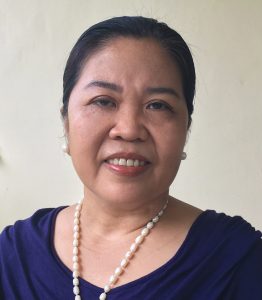
“DID you research about it?” My youngest daughter was quick to ask when I told her about an interesting experience that I had in one of my travels.
I was at the airport in Ethiopia waiting for the next flight when I saw this beautiful lady. She dressed like a flight attendant, with a bright-colored silk scarf around her long neck. I felt so tiny walking behind her to the restroom. Her steps were twice than mine that I couldn’t catch up with her pace. She was already retouching her make-up in front of a mirror when I entered the restroom. I could not stop glancing at her. With the symmetry of her face, her skin color, the thick and curly lashes, the defined lips, she could pass as a candidate to the Ms. Universe pageant.
I didn’t know how to react when that lady pulled out a foot-long twig from her handbag and used one end of it to clean her teeth. I don’t know if my jaw dropped but it felt like it did! I knew that twigs were used by some old folks in the province. They would pound or chew one end to soften it into bristles for teeth-cleaning. But not by young ones in the city; much more at an international airport. My sense of propriety was disturbed, and I wanted to convey that to my daughter.
“Maybe it’s part of their culture. Did you search in Google what kind of twig that was?” My daughter continued to ask.
I took a Cultural Intelligence test before, and I got a 100% score. My cultural awareness was high, and I was confident that I was sensitive to different cultures around me. Because our family moved a lot from one country to another, my husband and I trained our children to appreciate and respect cultural differences to help them adjust to new environment. “It’s not wrong, it’s just different from what we are used to.” We would say this whenever they experience a culture shock. Human as we are, we tend to forget. Our worldview, our own cultural background, and the context where we are coming from often take over and dictate how we react.
Following my daughter’s reminder, I searched and found that the twig is called Miswak, a chewing stick prepared from the roots, twigs, and stem of Salvadora persica (Toothbrush Tree) which is popularly used in the Middle East, Africa, and India. Several studies confirmed that it has greater efficacy for oral hygiene compared to the commercial fluoridated toothpaste in the market. It has also been recommended by World health Organization for oral hygiene because of its availability, efficacy, and affordability. Wow! How did I miss this information after all the cultural study and exposure I already had?
Each of us has our own measuring standard that is formed overtime through life experiences, cultural background, family upbringing, social norms, education, and religious influences. Our judgement of what is right, what is proper, what is just, and what is desirable can be traced back to the standard we set consciously and unconsciously. Sometimes, our judgment is based on the standard of others that is forced upon us. And if we are not careful, we also do the same on others. We would insist that our opinion is the only right one, and that our way of doing things is superior compared with others’.
I was glad that I did not make my reaction to the lady’s method of brushing known. Had I made a post on social media about my disgust, it would only bring embarrassment to myself. My ignorance would be highlighted, and my proud heart exposed. My sweet daughter was gracious in pointing me to what I should do, and I stood corrected. My once-little-child has grown, and I gained from the training we invested in her.
